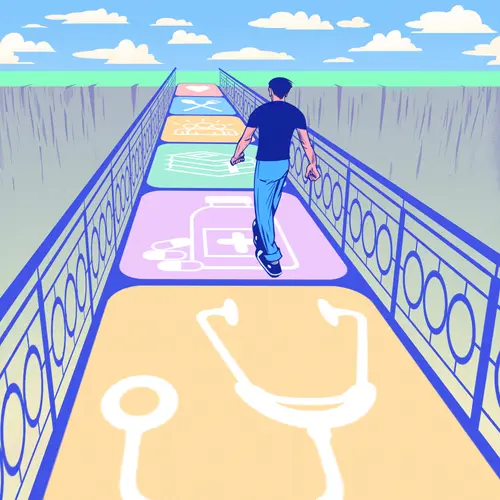You're working to slim down, but your belly hasn’t budged much yet.
Maybe you're making one of these mistakes. Shifting these habits could make all the difference. Losing the extra belly fat can lower your odds of getting heart disease, diabetes, high blood pressure, and more.
1. Thinking You'll Work It Off
You may be confident that you can make up for it in the gym, but think twice.
“There’s a myth about the role of exercise in weight loss,” says Brett White, MD, a family medicine physician in Newport Beach, CA. “Exercise is critical for [heart] health. But realistically, losing weight starts with what we put in our mouths.”
San Francisco-based nutritionist Manuel Villacorta, RD, founder of the weight management web site EatingFree.com, sees many men in their 40s and older who have discovered the shortcomings of exercise in their weight loss efforts.
“It’s what worked before,” Villacorta says, “but now they’re finding that it doesn’t have the same effect.”
Of course, you need to be active to lose weight and keep it off. Just don't count on exercise alone to cover your calories -- especially when you're packing away too much too often.
2. Not Planning Your Meals -- or Skipping Them Altogether
It's not just about what you eat. When you eat it also matters.
Eating on the run or at odd hours, you may be throwing off the brain signals that tell you when you’re hungry and when you’re satisfied. And that might lead to eating more than you should.
Skipping meals to slim down is also a bad idea.
When you put off eating, your metabolism slows down, and your body begins to store fat. “Anything that affects the metabolic rate will contribute to fat buildup,” Villacorta says. The bulk of that fat, he adds, gets stored in your midsection.
Your metabolism slows naturally as you age, Villacorta says, but you can keep it as active as possible by eating regularly. That means breakfast, lunch, and dinner, with healthy snacks in between.
Bonus: You’re less likely to overdo it at your next meal if you don’t let yourself get too hungry in the first place. “Excessive hunger is often followed by gorging,” White says.
3. Downing Man-Sized Meals
Controlling portion size is key to controlling the size of your gut.
Your three meals, Villacorta says, should be no more than 700 calories each. A cup of steel-cut oats with a cup of blueberries and a tablespoon of walnuts makes a great power breakfast.
Lunch and dinner should be 4 to 5 ounces of lean meat or omega-3-rich fish, such as salmon, for protein, with veggies and a whole grain, like quinoa or brown rice. If you’re a vegetarian, make sure to include a plant-based source of lean protein in each meal.
For your midmorning and midafternoon snacks, skip the chips and cookies. Instead, eat an apple and a cup of nonfat Greek yogurt.
In White’s experience, the healthier the food you eat, the more of it you can allow yourself.
“People think that dieting means eating less; they envision hunger,” he says. “But if you move from steak and potatoes to fruits and vegetables, you can actually eat more.”
If you eat processed foods, check the label. They may be higher in fat and sugar than you think.
4. Eating Because You're Stressed
When you’re feeling anxious, you’re more likely to turn to sweet, fatty foods like candy and cookies.
So if you want to flatten your belly, you have to take steps to control your stress levels.
For his own stress, Villacorta follows his therapist’s recommendation and does some simple relaxation exercises. Twice a day, he spends a few minutes taking deep breaths.
“I started doing that, and it was amazing,” he says. "Stress is going to be there,” Villacorta says, “but you can still learn to be healthy.”
5. Overlooking Liquid Calories
Do you know how many calories are in that drink?
Check the label. Or have a glass of water or tea. And if you drink milk, opt for skim or low-fat. You’re still getting the calcium and vitamin D you need, but without the added calories.
Also, take it easy with alcohol. It's got calories; and when you drink and loosen up, you may eat more than you would if you were sober.

